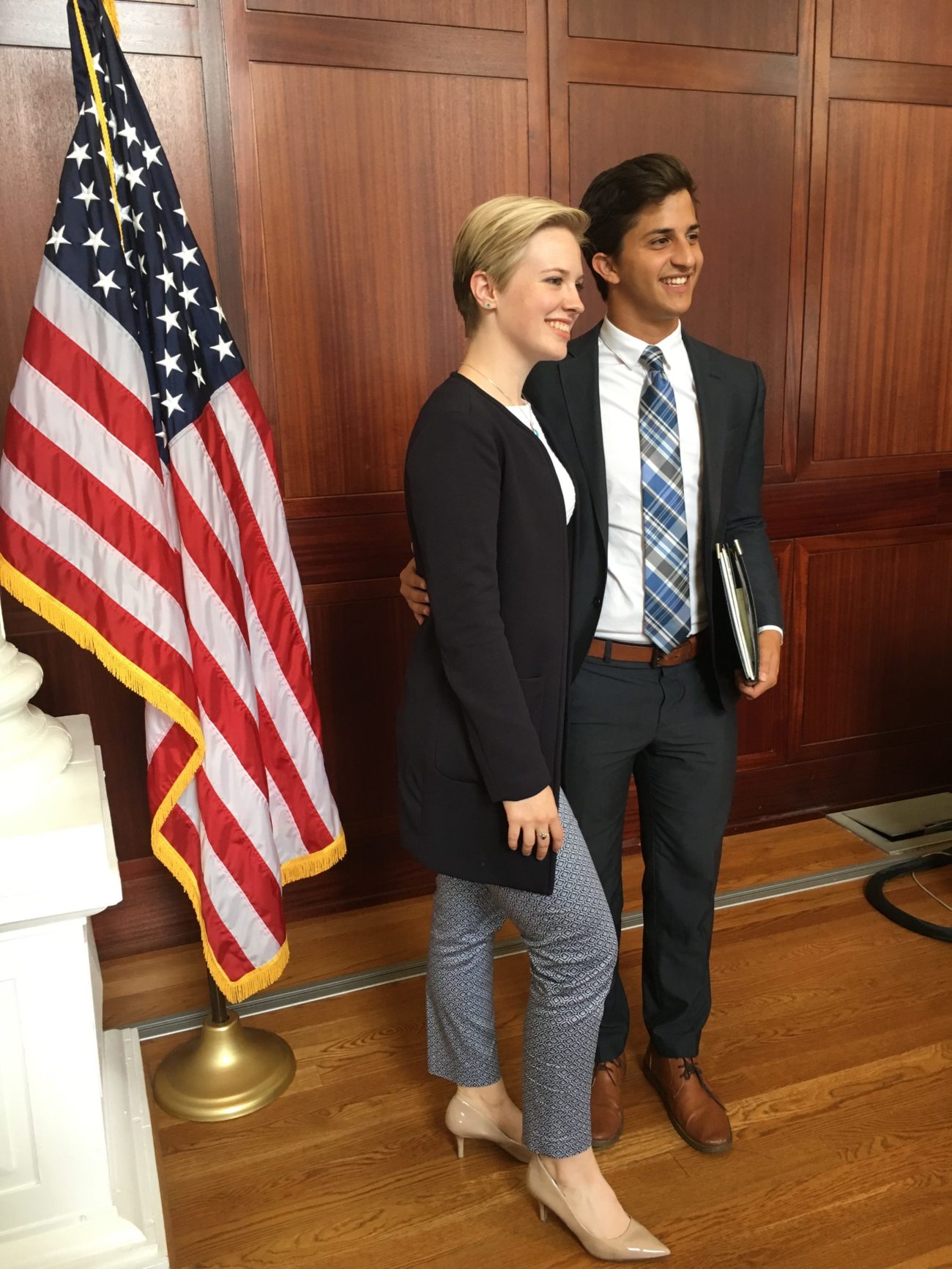
19 Apr The Road to Compromise (Part 2 of 4)
In the summer of 2017, the Henry Clay Center for Statesmanship College Student Congress attendees were tasked with finding bipartisan solutions to some of the most complex issues facing the nation – healthcare, foreign intervention, national debt, and transportation. Students first developed policy proposals along partisan lines, and then came together in a series of negotiations during which the partisan plans were merged into a single policy compromise amenable to both groups.
These negotiations among talented college students produced new and creative solutions to major national issues, proving along the way that partisan values need not be abandoned to reach compromise, and that mutually beneficial compromise is in fact achievable.
This spring we will be highlighting a different policy solution developed by our 2017 College Student Congress attendees. It should be noted that the policy solutions presented in this series are mere summaries of the proposals that resulted from hard work by dedicated groups of students who were constrained by both time and resources, and do not fully capture the level of detail and commitment each group invested in their solutions. Up next, foreign intervention.
Foreign Intervention
The summer of 2017 saw a diplomatic stalemate erupt in the Middle East. In early June, a bloc of Arab nations led by Saudi Arabia cut diplomatic ties with the small Gulf state of Qatar for a variety of alleged activities, plunging the region into political turmoil. The diplomatic crisis put the United States in an unenviable position between two regional allies.
While coming up with a solution for the situation in Qatar did not fall squarely along partisan lines, traditional liberal and conservative stances on the military, humanitarian aid, and economic policy emerged during the student negotiations.

Highlights of the initial liberal policy proposal involving counter-terrorism operations, economics, and humanitarian aid included the following:
- Maintaining the integrity of the Al Udeid Air Base in Qatar.
- Suspending US airstrike operations in the region for a minimum of three months, pending revaluation of the region’s stability.
- The US not adding association name to the US terror list.
- The US becoming a third party claimant in the dispute and siding with Qatar.
- Allocation of USAID funds to the Qatari branch of the Red Crescent and Food Security Program.
There were overlaps between the two policy proposals, though differences with the conservative proposal were highlighted in the following objectives:
- Ensuring that regional operations against ISIS are unaffected by the diplomatic crisis.
- Evaluating the use of the terrorist label.
- The US serving as a mediator in the dispute, thereby embracing its international leadership role.
- Understanding that the current humanitarian efforts of regional neighbors are sufficient and that there would be complications if the US sent additional aid.
During the negotiation sessions it was determined by the students that the singular compromise objective should be ensuring the Saudi-led bloc nations reinstate relations with Qatar while still maintaining US alliances on both sides of the dispute, given US economic and security interests in the region.

On counter-terrorism, the liberal and conservative groups agreed that the US would maintain current anti-terrorism operations from its base in Qatar, but that the US would not involve the military in additional conflict in the Gulf Region. It was also agreed upon that the US would not add organizations or entities named in the conflict to the terrorist list. Further, the US would not engage in the sanctions against Qatar related to alleged terrorism activities.
Economic policy compromises centered around encouraging Qatar to bring suit against Saudi Arabia in the WTO. While the students eventually agreed that the US would become a third party claimant in the dispute, it was also determined that the US should continue to highlight the importance of Saudi economic relations with the US.
Finally, the two groups agreed that no immediate humanitarian action would be taken by the US. Instead, the US would monitor the situation via the reporting of Amnesty International and the United Nations, and any allocated aid funds would come from the UN regular budget in the State Department’s Contributions to International Organizations (CIO).

Both the liberal and conservative groups made departures from their initial policy proposals. The liberal group approved military involvement in the region under the circumstance of a Saudi Arabian territorial advance in the region, changed the stipulations of airstrike cessation to include only GCC countries, and agreed that funds would be allocated from the CIO account instead of USAID. The conservative group accepted a WTO proposal, agreed to send in additional humanitarian aid in the event of famine, and restricted potential airstrikes against groups in nations that are part of the Saudi-led bloc.


